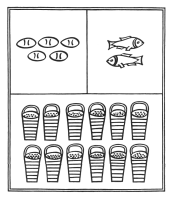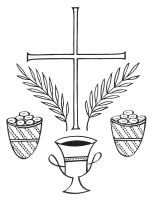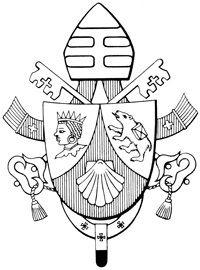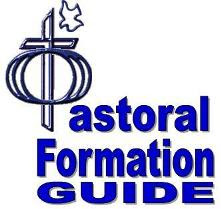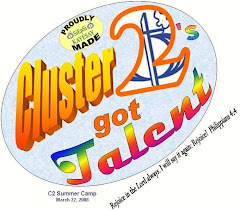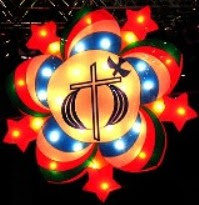Weekly Household Guide
Week 1 - July 6-10
1 Cor 6:17
Verse:
But he who joins himself to the Lord becomes spiritually one with Him.
Reflection:
As Couples for Christ, we all endeavor to truly be one with Christ reflecting
His mind, heart and will in our lives.
The decision to be “for” Christ necessitates a decision to truly bind ourselves as one in the Lord.
As we grow in oneness of Spirit, people begin to see Jesus in us.
- We reflect God’s life within us.
- We dwell in God’s presence.
- We persevere in imitating Jesus and the Father.
- We embrace God’s training and discipline.
These external manifestations of the Spirit in our lives become the seedbed for concreteChristian witness, as God uses us as instruments for making His presence in the world seen and felt by others, who as yet do not know Him.
Discussion Question:
- In my years as CFC, how deep I have grown in familiarity and oneness in spirit with Christ:
- reflecting His life within me?
- dwelling in His presence?
- imitating His example?
- embracing His training and discipline?
Weekly Household Guide
Week 2 - July 13 to 17
Verse:
“Don’t you know that your body is the temple of the Holy Spirit who lives in you and who was given to you by God?”
Reflection:
Every time we talk of the body being a temple of the Holy Spirit, we are drawn to focus on the aspect of purity of the flesh. But the body is more than just physical. Beyond physical purity then which we should keep, we should also actively advocatepurity of heart and spirit truly reflecting our being born of the Father, and child of God.
How is this reality manifested in our presence?
− What do our eyes behold?
Do we see more good than bad?
− What do our mouths declare?
Do we proclaim God and His goodness in all?
− What do our hands touch?
Do our hands touch to heal, to give, and to nourish?
− What do our feet pursue?
Do we walk only towards the light and shun what is dark and evil?
Our body, temple of the Holy Spirit needs to constantly be kept pure.
Discussion Question:
- How are we actively keeping our bodies truly fit to be the Spirit’s dwelling place.
- Is the Spirits within us, truly glorified or wrongly oppressed?
Weekly Household Guide
Week 3 - July 20-24
1 Cor 7:1
Verse:
A man does well not to marry.
Reflection:
Marriage was instituted by God to call man and woman to oneness in raising humankind.
The oneness desired is to be reflective of the unity that binds Father, Son and Spirit. It is a tall task, one that can only find fulfillment, where God is a party to the marriage.
It is His grace that makes the union possible. Human efforts of even both husband and wife, and even with the best they can and will give, are doomed to fall short and fail where God is absent.
A man who decides to marry must know that this is what God expects of him, and must likewise decide to plead with God for the grace of His uniting Spirit.
Discussion Questions:
1) Do we acknowledge God’s role in our marriage?
2) How have we invited God’s participation in building our home for God?
3) What manifestations of God’s power are reflected in our union?
Weekly Household Guide
Week 4 - July 27-31
1 Cor 7:3
Verse:
A man should fulfill his duty as a husband and a woman should fulfill her duty as a wife, and each should satisfy the other’s needs
Reflection:
What are the duties of spouses to one another; what are husbands accountable to their wives about, and what are wives, in turn accountable to their husbands about?
Duty implies a promise, a covenant by the pact of matrimony, sealed with God as witness in the sacrament. Duty here, then implies full knowledge, full consent, and full commitment. Rendering the duty is therefore a must.
It is both spouses’ commitment to seek the good of their beloved in all aspects of welfare in both body and spirit.
Spiritual oneness pursued in seeking each other’s mind, heart and will in all aspects of couple life: individual needs, marriage and family goals, the raising of children, building a home for God- nourishing, strengthening and enhancing the union, needs to find full physical expression in the couple’s sex life.
As in the spiritual and emotional realms, both spouses must seek to satisfy one another’s physical needs for intimacy and oneness.
All efforts at unity and coming together of both persons must converge on the marital bed, where two are physically made one.
Out of this Eucharist then, God calls life to birth and blesses it.
Discussion Questions:
- How faithful are we to every aspect of our marital duty as spouses?
- In what areas do we need Godly intercession?



